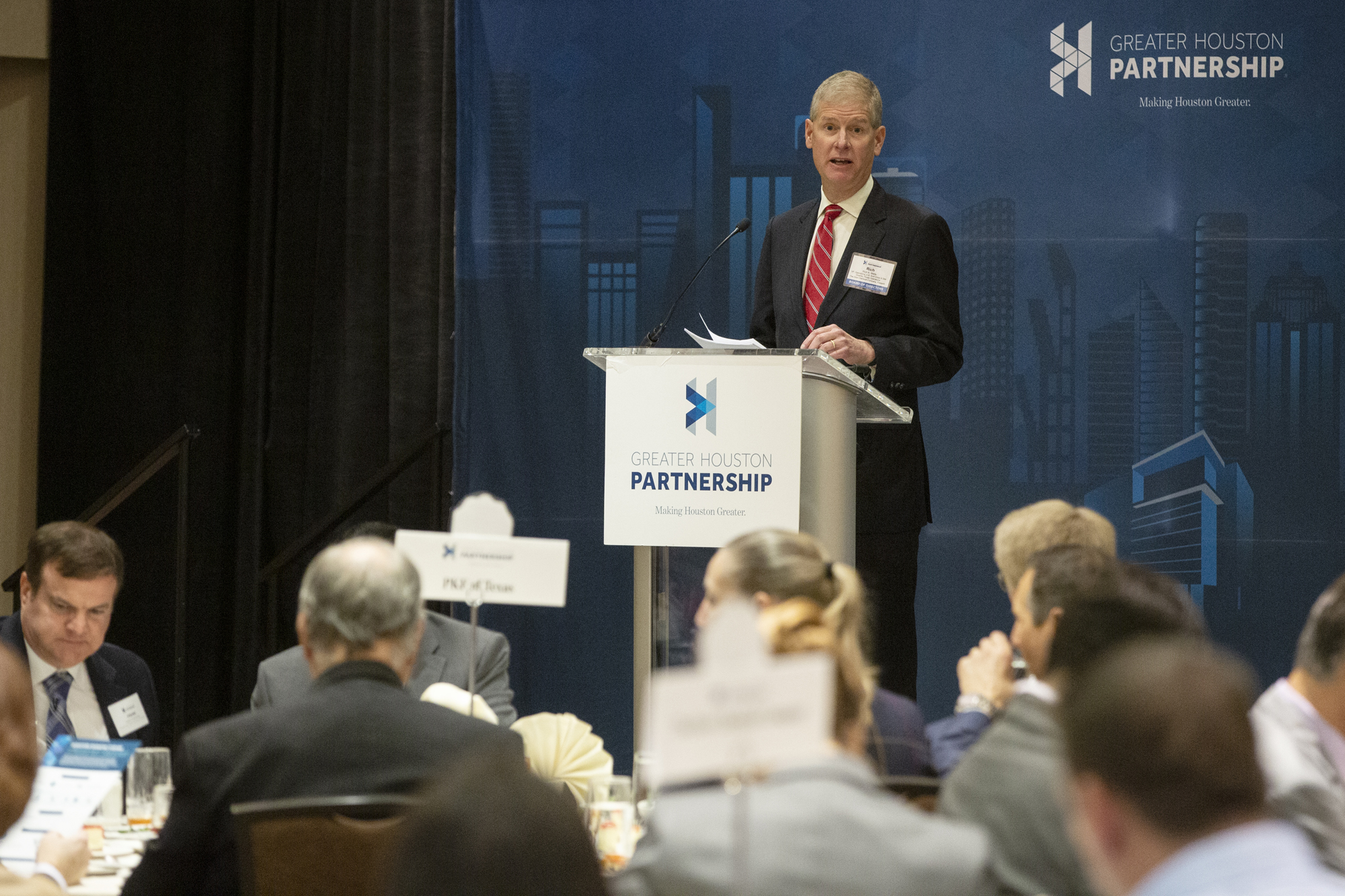Houston Manufacturers: Positive Environment Will Help Expand Local Operations
Published Nov 06, 2019 by A.J. Mistretta
Major manufacturers in Houston are bullish on their expansion plans in the region, which could help bolster Houston’s identity as a hub for various segments of the industry.
That was one of the main discussion points at the Greater Houston Partnership’s Manufacturing Industry Forum on November 6. Mike Molnar, Founding Director of the Office of Advanced Manufacturing at the National Institute of Standards and Technology, gave the keynote address, providing an overview of the national manufacturing landscape.
The Houston region is home to more than 6,400 manufacturers that produce more than $82 billion in products annually. The industry employs more than 230,000 workers and helps drive Houston’s substantial export economy.
The Partnership’s Manufacturing and Logistics Committee is working to target prospective global manufacturers for expansion or relocation to the Houston region. Led by chair Rich Wells, Vice President of U.S. Gulf Coast Operations at The Dow Chemical Company, the committee recently surveyed a subset of 10 companies with significant manufacturing operations in the Houston area to get their perspective on operating here. Together, those companies employ 25,000 local workers, or about 10% of Houston’s manufacturing employment base.
Seven of the 10 companies surveyed said they plan to expand their Houston area operations in the next three years. Those collective expansions could mean 3,400 new jobs and $5.2 billion in capital expenditures. Most of the companies surveyed said their primary customers were in international markets and that they expect demand to increase in the near term.
When asked about the perceived strengths of the region to support their operations, the surveyed companies cited the concentration of STEM talent, significant transportation infrastructure, low-cost of doing business and access to global markets.
“As a committee, we were pleased to see that these results align with the way we are already promoting Houston as a manufacturing city,” said Wells.
The companies also cited several specific challenges to operating in Houston, including the threat of natural disasters, poor air quality and poor-quality K-12 schools, among other issues. Wells said the Partnership is working through its various initiatives to tackle each of those challenges.
“We will take the results of this survey and sharpen our work and tighten our pitch to the companies we are working to attract,” Wells said.
In his presentation, Molnar stressed the important role the manufacturing sector plays in the nation’s economy. Approximately 10% of U.S. jobs are tied directly to manufacturing, and it’s in that sector where the vast majority of research and development still happens.
Molnar said that despite the oft-repeated idea that most manufacturing happens overseas in countries such as China, the U.S. still leads the world in manufacturing advanced technology products.
“The U.S. is making more stuff than ever before in our history,” he said. “The golden age of manufacturing is now.”
Texas is the only state that is exporting more manufactured goods than it’s producing, meaning goods manufactured elsewhere in the country, or even abroad, are passing through the state’s ports to be exported to customers overseas. Molnar said that illustrates the critical role Texas plays in the global supply chain.
Certainly, with Houston’s central geographic location relative to the U.S. and to the Americas broadly, along with our numerous logistical and distribution channels, the region is an ideal hub for manufacturing companies that need to reach customers around the world, said Partnership President and CEO Bob Harvey.
Harvey pointed out that the manufacturing industry is in the midst of a transformation, leveraging and developing new digital technologies, including artificial intelligence, industrial internet of things, and additive manufacturing, among others. These changes are apparent at some of Houston’s largest manufacturing companies as well as in the innovation sphere at places like maker space TXRX in East Downtown and TMCx, an accelerator for cutting-edge medical device manufacturing at the Texas Medical Center’s Innovation Institute.
“The exciting work happening in our region positions us well as a competitive place to attract and grow cutting-edge manufacturing companies,” Harvey said.
Learn more about manufacturing in Houston and local industry data. Also view Mike Molnar's presentation.
 The Houston Report
The Houston Report



















